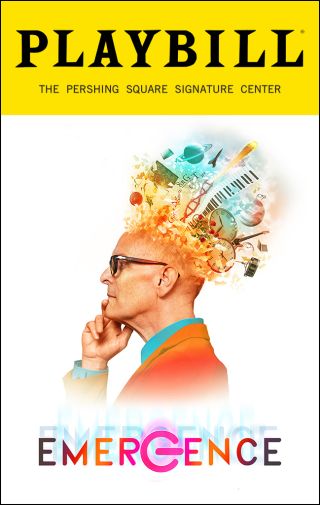Philosophy
Flashing Back to Mind-Benders of My Youth
A Personal Perspective: A psychedelic play that poses big questions.
Posted November 9, 2023 Reviewed by Lybi Ma

I wasn’t always a science guy. In my youth I obsessed over the big questions: Why am I here? Is there a God? What is time? But they blew my mind and sent me running for cover to predictable things, questions I could actually answer. I was frustrated asking those unanswerable questions. I had to move on with my life, get a job, and bring home the bacon. I sought solace in geometry, quantum physics, and medicine. Science allowed me to solve real-life problems rather than ponder deep and mysterious questions.
And there I have stayed, buried in neuroscience and the psychology of the brain. My lingo changed from: “Be here now,” to “Double-blind placebo-controlled study.” I believed I might hide forever from the biggies: “What happens when we die?” And, “What is love?” Until Tuesday night.
Emergence, Patrick Olson’s one-man show (with a bunch of other performers on stage), bent my brain all over again. My reprieve from those esoteric pursuits was cut short. I flashed back to college but my professor was Patrick—composer, performer, musician, philosopher, dancer, writer, star, and producer of an experience like no other. With his original rock music, captivating dancers, and psychedelic light show, he brought those questions back, front and center. “Things are not always as they seem” was Patrick’s theme to expose the wonder and inexplicableness of our perception of reality.
I was plunged back into my youthful search for hard-to-come-by answers. My public-school curriculum hadn’t covered these topics, and Western religion’s explanation, that an omnipotent deity was responsible for all, didn’t seem to get to the bottom of it for me. If God started it all, who started God?
In college, I majored in philosophy and obsessed with the big questions, reading the works of Eastern thinkers like Lao-Tzu, Alan Watts, and Jiddu Krishnamurti. They argued that mindfulness was the pathway to enlightenment and that I was focusing too hard on breaking down and parsing out specific details. Their way to do was not to think, but to be. I soon drifted away from solving the mysteries of the universe towards science and medicine. The scientific method became my new mantra. It involves posing hypotheses, performing experiments to test them, and viola—you have your answer!
Emergence reminded me that although I might not ever be able to answer those big questions, I thoroughly enjoyed pondering them. It opened my mind and I experienced awe, like the thrill I get when watching the moon rise from the horizon or witnessing a solar eclipse. Those humbling and energizing moments made me feel outside of myself, an infinitesimal part of something much larger.
Today, I ponder these weighty issues in baby steps, lest I inadvertently explode my frontal lobe. The ancient Greek philosophers warned “The only problem with seeing too much is that it makes you insane,” and I agree. After seeing Emergence the other night, I still had to go be a psychiatrist Wednesday morning, yet I continued to mull over the biggies.


